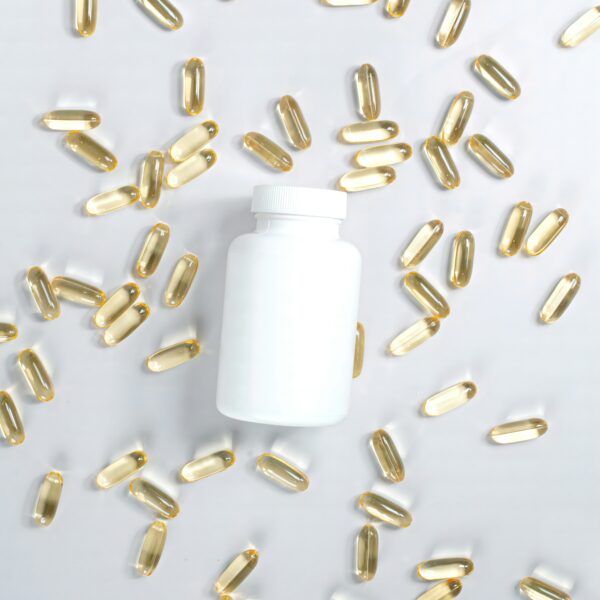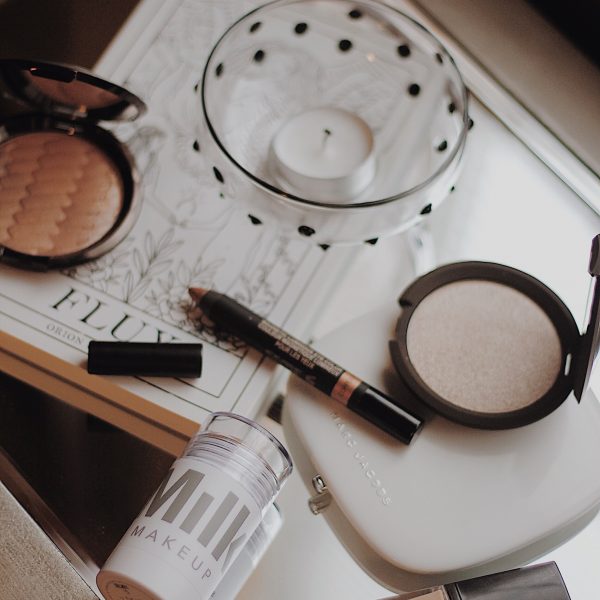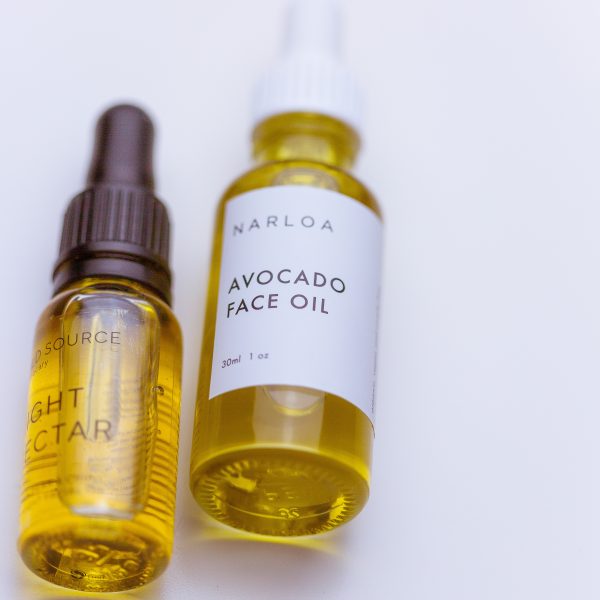I am pretty sure that I am not the first to explain the importance and benefits of sun protection. Skin is the largest organ of our body which protects our body from germs and other external aggressors along with regulating our body’s temperature as well, and we all know how essential it is to take care of our skin because it is no less important than any other organ of our body. Therefore, it would be pretty evident for me to state that sun protection doesn’t just protect us from harmful UV rays and prevents sunburns but also reduces premature skin ageing, lowers the risk of skin cancer and helps to keep an even complexion. So, to summarize it all, sun protection is highly essential and a must-do part of any skincare routine that should not be overlooked at any cost because that cost could mainly be the health of your preciously beautiful skin.
THE DIFFERENCE BETWEEN SUNSCREEN AND SUNBLOCK.
As we all know the importance of sun protection, not many of us know the difference between sunscreen and sunblock. I cannot shed enough light on how important it is for us to know and understand the ingredients of our product and have an idea about how they work. To adopt a skincare routine that is highly effective and completely healthy, one has to know what products and ingredients they are using. Here, I am going to explain the difference between sunscreen and sunblock, so next time while going to a supermarket or a pharmacy, you should already know what you need to choose.
Sunscreen and sunblock are two different forms of sun protection, and I have seen a lot of people using these terms without knowing the actual difference. Sunscreen is more commonly used than sunblock. It helps filter the UV rays, keeping most of the rays out but letting some of them in. it may also be known as chemical sunscreen. However, on the other hand, as the name implies, a sunblock helps block all the UV rays reflecting them away from the skin, also known as a physical sunscreen. Both of them are effective forms of sun protection, and we would not advise using one over the other. The key is to choose according to your skin type, and you are good to go.
CHEMICAL VS PHYSICAL SUN PROTECTION.
Chemical sunscreens include active ingredients such as oxybenzone, avobenzone, and para-aminobenzoic acid (PABA). They penetrate the skin and absorb the sun rays, protecting the skin from sun damage.
Physical sunblock defends the UV rays physically. They mainly include ingredients like zinc oxide and titanium oxide, which makes them sit on top of the skin and act as a barrier. Physical sunblocks are usually opaque and noticeable as they leave a white residue on the skin.
Now, the question is which one to choose.
People with sensitive and irritated skin or skin prone to allergy should use physical sunblock. It won’t go deep into the skin and would not mess with such skin conditions causing sensitivity or irritation. Active ingredients like zinc oxide and titanium dioxide are easily tolerated on such skins and are also typically found in child products.
Those with normal or non-sensitive skin can safely go with chemical sunscreens. Because even if it would penetrate deep into the skin, it would not create any skin issues.
SOME “NOT SO COMMON, YET IMPORTANT” TERMS RELATE TO SUN PROTECTION.
● UVA Rays and UVB rays:
Ultraviolet A rays have a longer wavelength and are mainly responsible for skin ageing. However, ultraviolet B rays have a shorter wavelength and can burn skin.
● Broad Spectrum:
Whether chemical or physical, always look for broad-spectrum sun protection. If a sunscreen or a sunblock has been labelled a broad-spectrum, it means it can protect from both UVA and UVB rays. And obviously, we need to be protected from both.
● Water-resistant:
No sunscreens and sunblocks are waterproof. However, it should be water-resistant. It means the product would not be effective after being 40 minutes under the water; re-application would be necessary after that. So always get yourself a sun-protecting product that is water-resistant.
● SPF:
SPF stands for sun protection factor. It denotes how long it will take for the UV rays to redden your skin while using the product compared to the amount of time it will take without any sun protection.
For example, if you are wearing sunscreen with an SPF 30, it means it will take your skin 30 times longer to burn than, as compared to what it could have been without any sun protection. For an SPF 50, it would take 50 times longer.
However, it is necessary to note that SPF (sun protection factor) is not linear. An SPF number always refers to the amount of protection it provides from the UVB rays because UVB rays are a little more energetic than UVA rays.
I know it would be a little confusing, but let me break it down a little so you can understand better. As it has already been stated that SPF is not linear, it actually works like this:
• SPF 15 blocks 93% of UVB rays
• SPF 30 blocks 97% of UVB rays
• SPF 50 blocks 98% of UVB rays
So basically, sunscreens with high SPFs, such as SPF 75 or SPF 100, don’t provide significantly greater protection and make us believe that we are fully protected, whereas no sunscreen provides 100 per cent protection. Therefore, choose yours wisely and don’t just opt for the higher SPFs; the more is not always better.
Here are some best sun-protecting products that you can start using right away and get yourself protected.
BEST FOR ACNE-PRONE SKIN:
● La Roche-Posay Anthelios Clear Skin Dry Touch Sunscreen SPF 60
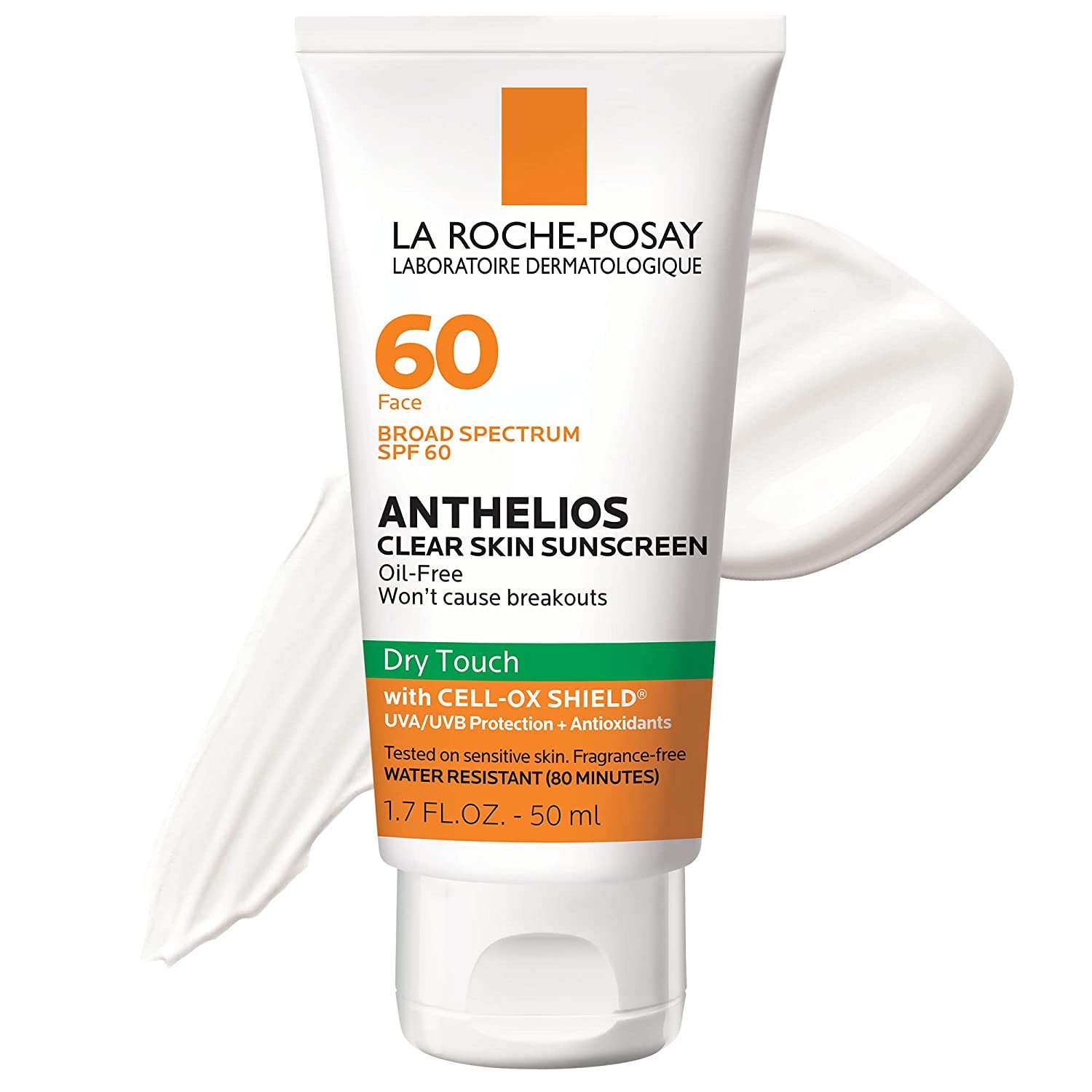
For oily and acne-prone skin, the non-greasy La Roche-Posay Anthelios Clear Skin Dry Touch Face Sunscreen SPF 60 offers broad-spectrum UV defence and antioxidant advantages by absorbing pore-clogging impurities and oil, especially in hot and humid conditions due to the presence of Perlite and silica. In addition, the Cell-Ox Shield XL antioxidant technology in this cutting-edge Sunscreen aids in preventing the appearance of wrinkles, which is the best part, and it can withstand water for up to 80 minutes.
● Neutrogena Clear Face Liquid Sunscreen
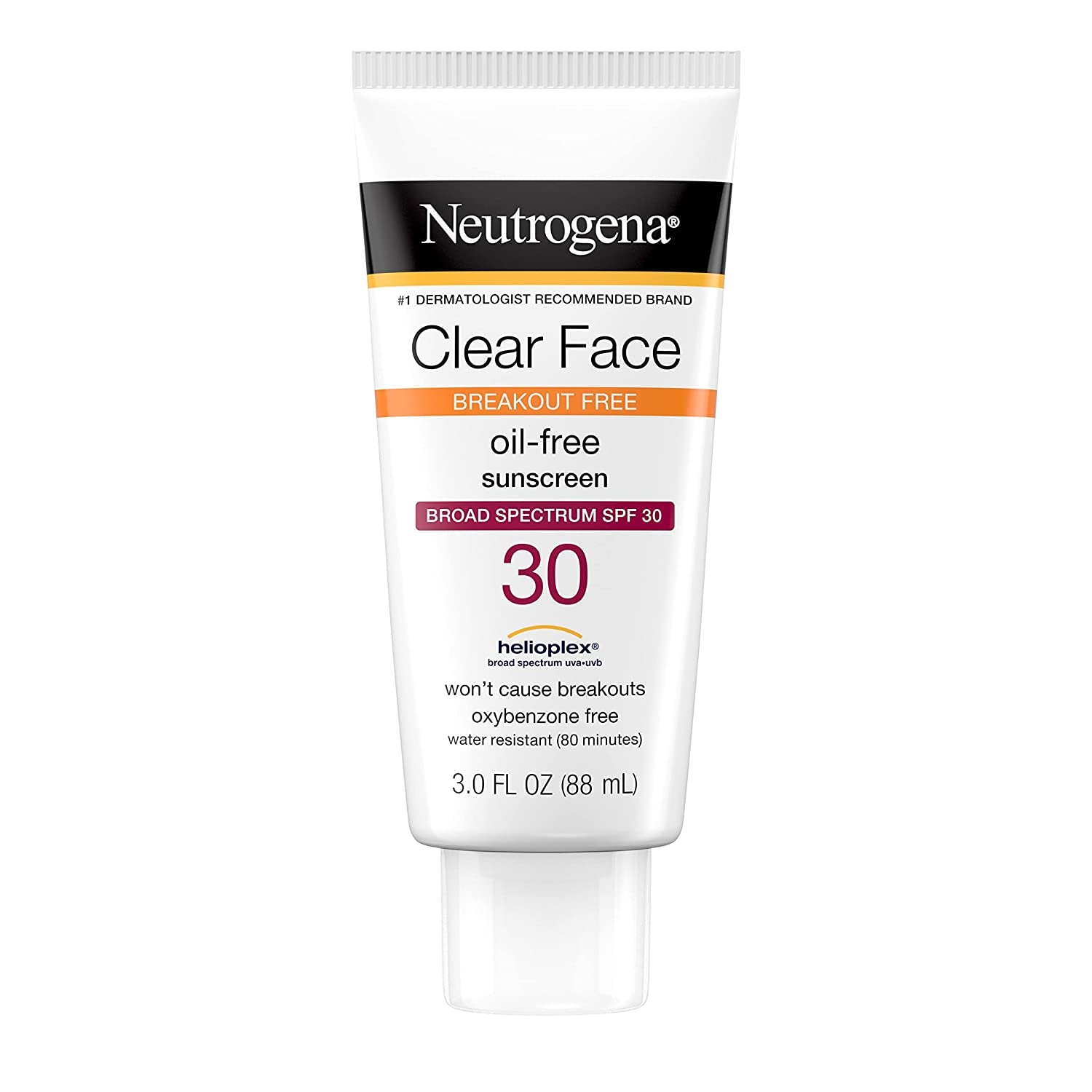
Helioplex Technology, the most popular oil-free Sunscreen for skin prone to acne, is precisely developed for daily use. Without leading to breakouts, it offers outstanding broad-spectrum UVA/UVB protection. This water-light liquid sunscreen lotion is ideal for the face and body since it leaves a weightless, matte finish that allows the skin to live. Moreover, this dermatologist-tested formulation won’t clog pores or lead to acne breakouts because it is fragrance-free and non-comedogenic.
BEST FOR DRY SKIN:
● La Roche-Posay Anthelios Melt-in Milk Body & Face Sunscreen Lotion Broad Spectrum SPF 100
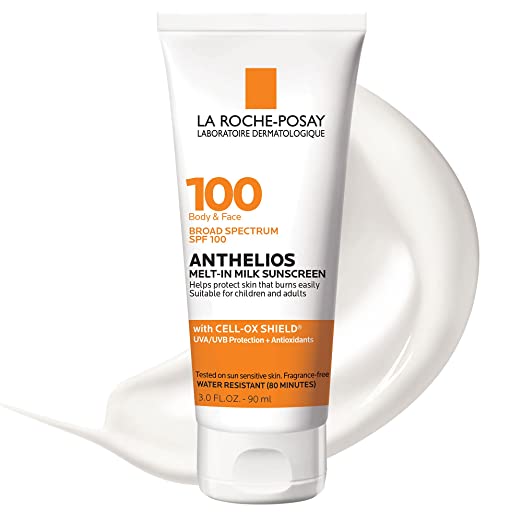
Tired of sunburn whenever you go out? A broad spectrum, oxybenzone-free Sunscreen for the face and body, this lightweight Anthelios Melt-in Milk Body and Face Sunscreen SPF 100 was specially created to help protect skin that is easy to burn. This La Roche-Posay sunscreen features include Cell-Ox Shield Technology, UVA/UVB shields, broad-spectrum antioxidants, and is resistant to water for almost 80 minutes. In addition, it gives skin a silky sheen and a sensation of hydration and is ideal for people with sensitive skin!
● Peter Thomas Roth | Water Drench Broad Spectrum SPF 45 Hyaluronic Cloud Moisturizer
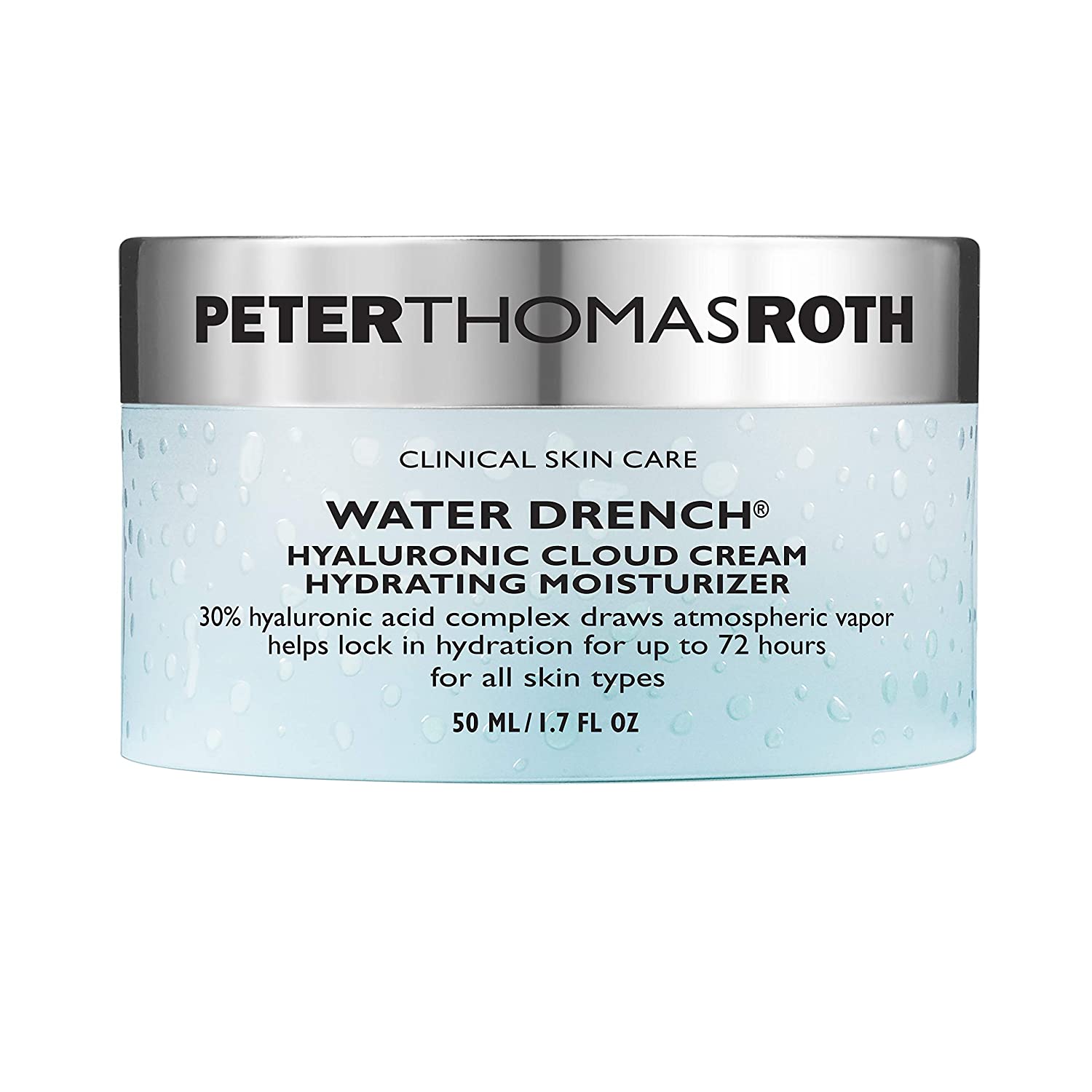
Hyaluronic acid, an intense hydrator that attracts water, is a 30% complex in this non-greasy, cream-to-water SPF 45 sunscreen. Its 5% SunBoost increases UV protection, its Pentavitin (plant extract) is best believed to hydrate skin for up to 72 hours, and its ceramides lessen the appearance of photoaging—leaving skin feeling soft and silky like never before. So why not soak your skin with it?
BEST FOR SENSITIVE SKIN:
● Cetaphil Sheer 100% Mineral Liquid Sunscreen
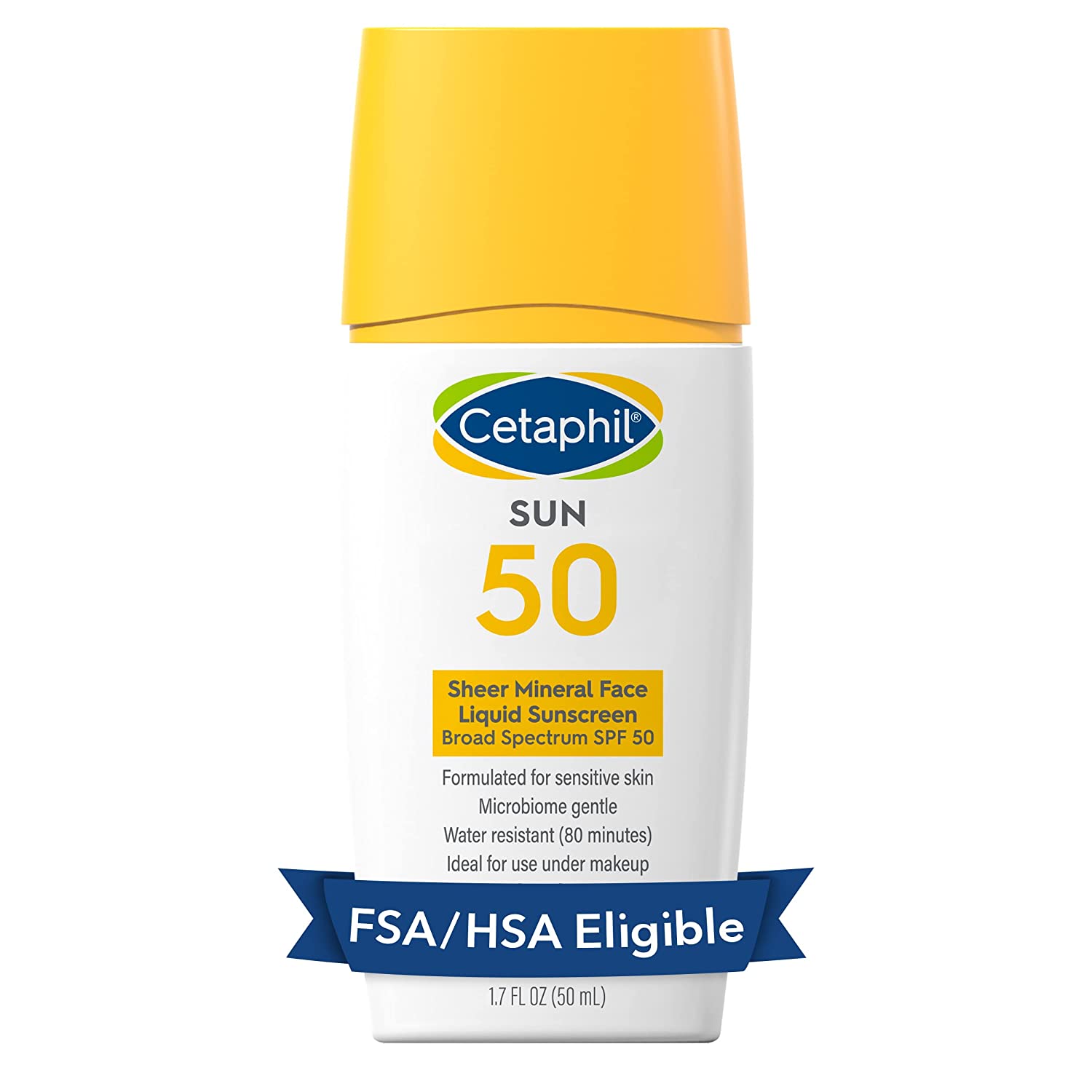
Cetaphil Sheer Mineral Face Liquid Sunscreen is a featherweight, fragrance-free mineral sunscreen developed for daily use on the face and even under makeup. Broad spectrum SPF 50 reflects both UVA and UVB rays to help avert sun damage and decrease the risk of skin cancer and early signs of ageing due to sun exposure. Its formula combines the Prebiotics and calming vitamin E added with sheer zinc oxide to help protect skin from surface free radicals.
BEST FOR BABIES:
● Blue Lizard Australian Sunscreen — Baby SPF 30 Plus
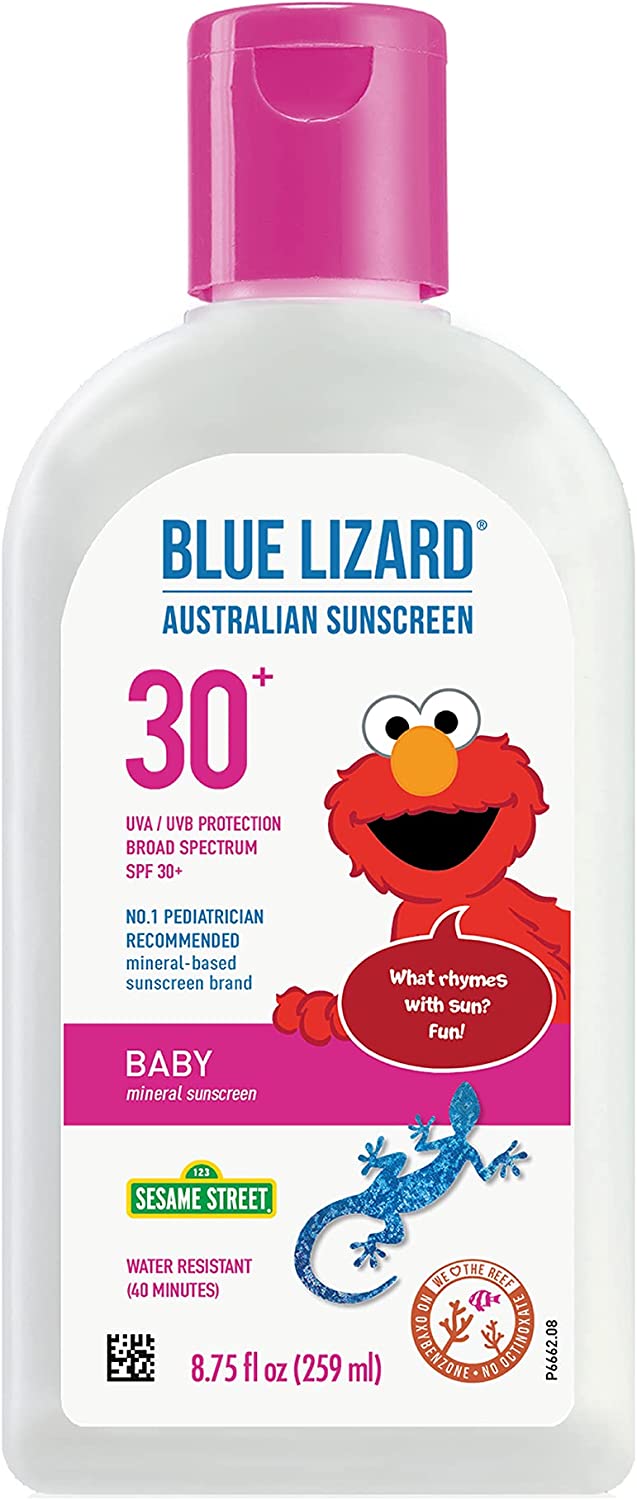
We love sea shores, but what about our babies? The mineral Baby sunscreen from Blue Lizard Australian Sunscreen is free of parabens and fragrances and is made to protect skin that is as delicate as a baby’s bottom. This Sunscreen shields you and your child by behaving like millions of tiny mirrors that deflect UV radiation using only Zinc Oxide and Titanium Dioxide as perfect ingredients. A fact to be noted: true broad-spectrum protection from 97% of the sun’s harmful rays is offered by this SPF 30+ Blue Lizard product.
BEST SUNSCREEN AS A MAKEUP PRIMER:
● Supergoop! Unseen Sunscreen – SPF 40 PA+++ Reef-Friendly
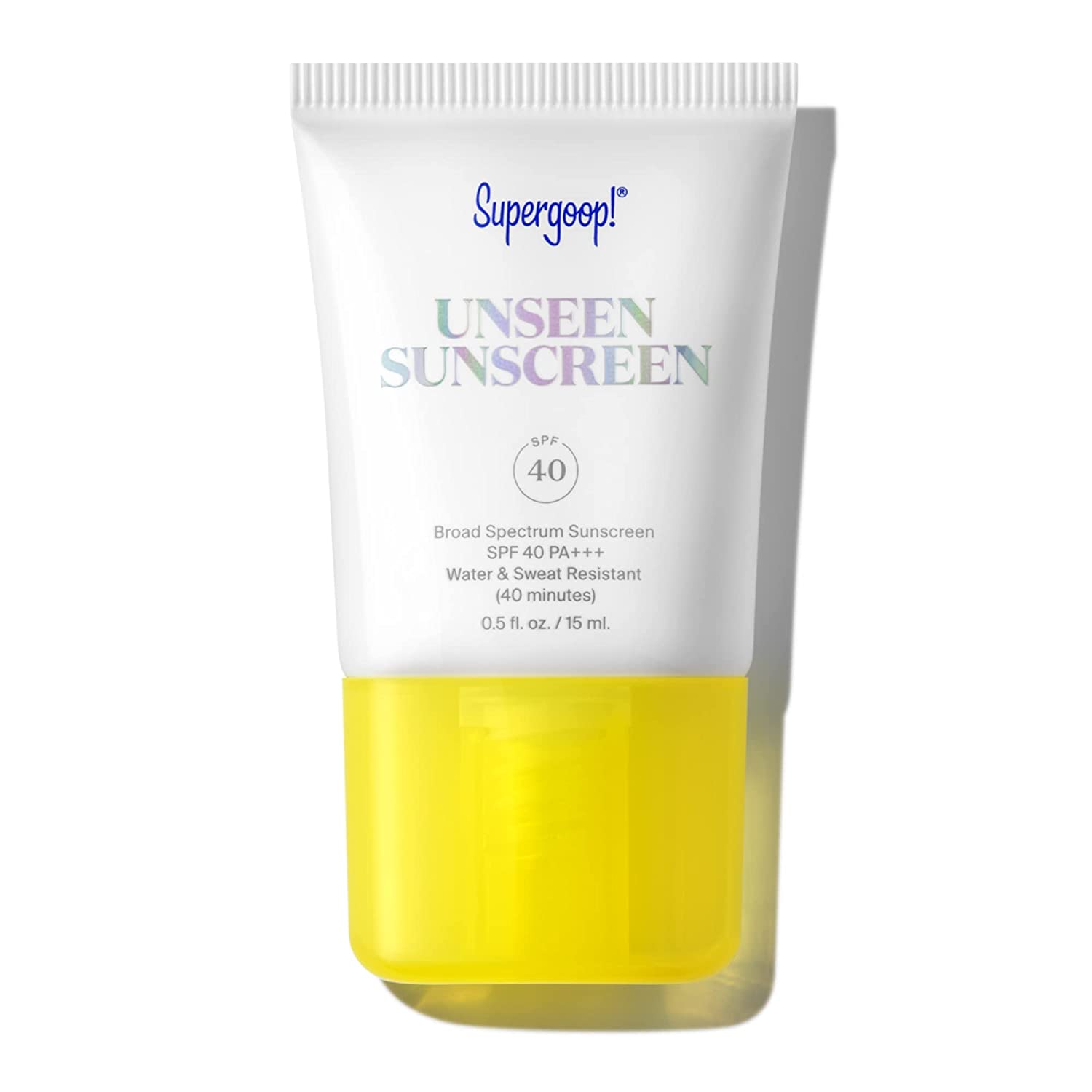
This unique, weightless, and scent-free SPF primer with antioxidants prepares skin for makeup while offering broad spectrum SPF 40. Additionally, chemical ingredients such as Red Algae provide tech protection against the light produced by our phones and computers. This oil-free product applies smoothly to the skin, controlling shine and giving a velvety, makeup-sticking finish. Its highlighted ingredients include the Meadowfoam Seed-Derived Complex, which aids in boosting moisture levels, giving skin a more even texture.
BEST TINTED SUNSCREEN:
● Australian Gold Botanical Sunscreen – Tinted Face BB Cream SPF 50
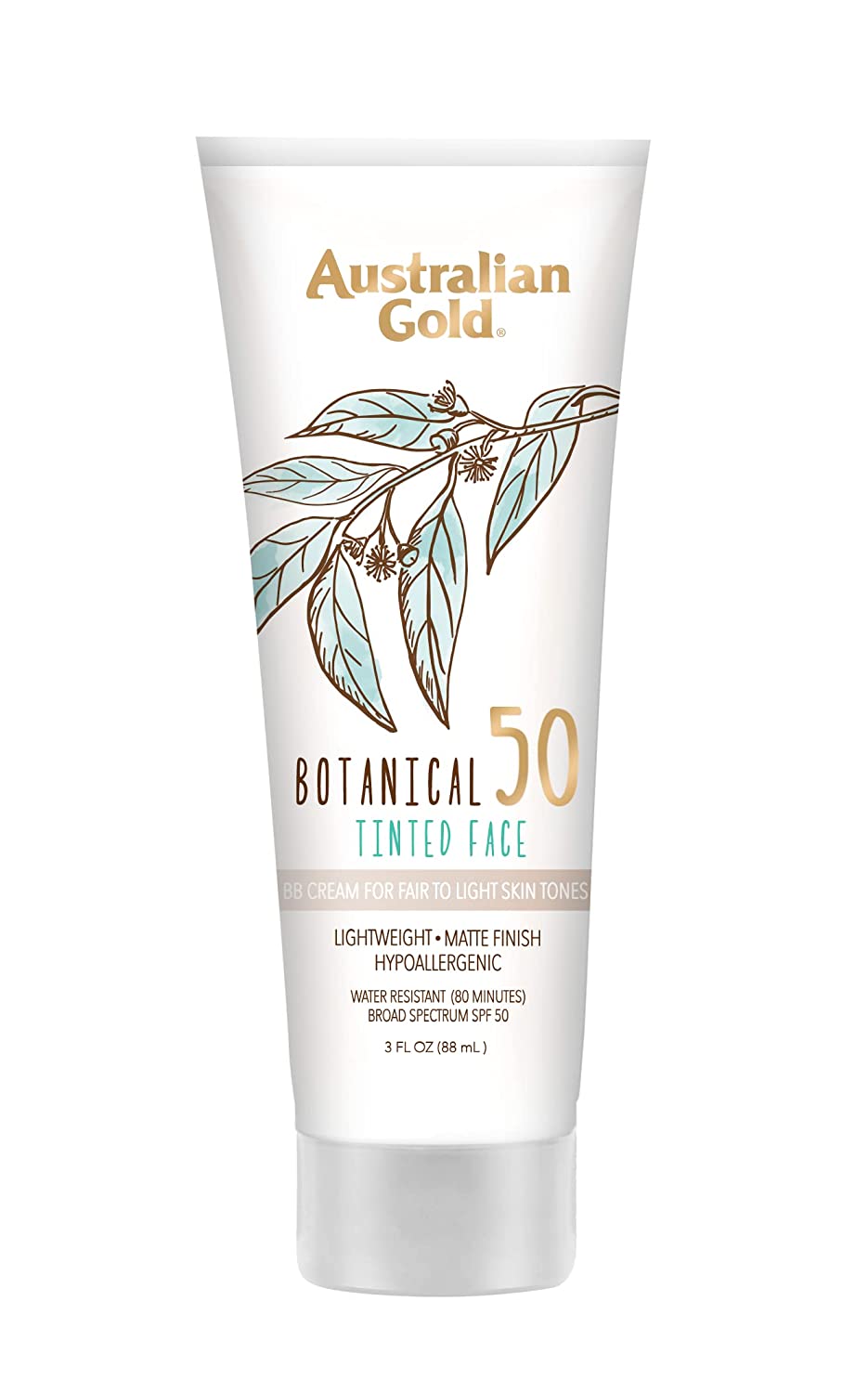
Australian Gold’s Botanical SPF 50 Tinted Face Mineral Sunscreen has completely swept up the industry. Not only does it offer excellent sun protection, but it may also be used as a light foundation or makeup primer. In addition, this multipurpose item is available in various hues to accommodate even more complexion tones. Last but not least, its rich formula contains Titanium Dioxide and Zinc Oxide, which are renowned for offering an alternative to chemical sunblock with a powder-like finish that is never oily.
VEGAN AND REEF FRIENDLY:
● Sun Bum Original SPF 50 Sunscreen Lotion | Vegan and Reef Friendly
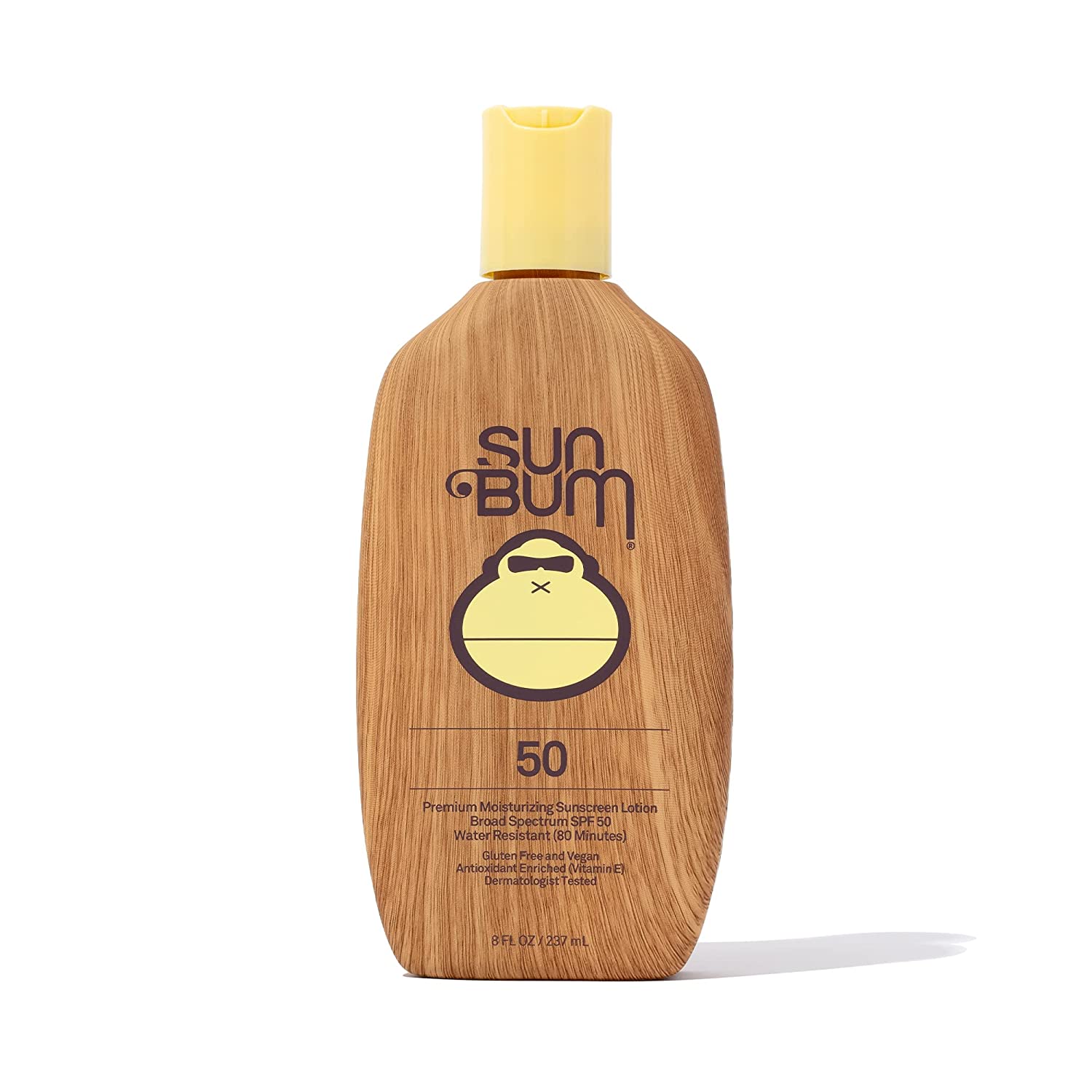
Ever smelled a summer-like scent? The beautifully scented Sun Bum Sunscreen Lotion SPF 50 is a moisturizing sunscreen product that shields your skin from damaging UVA and UVB radiation while also nourishing it with Vitamin E. This antioxidant helps to combat free radicals, the main contributor to premature skin ageing.
Thank you for reading this blog! Let us know in the comment section if you find it helpful because I would love to know what you think! And if you enjoyed reading this article, share it with your family and friends.


